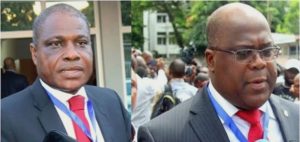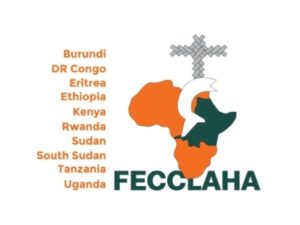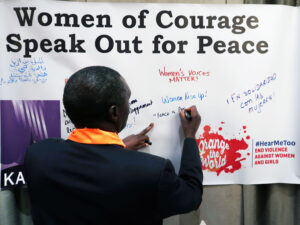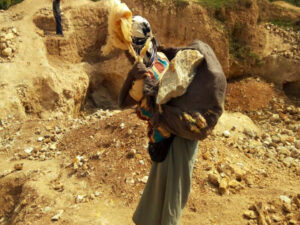Transparently opaque rigged DR Congo presidential election

The long-awaited presidential election that took place in the Democratic Republic of the Congo (DR Congo) on December 30, 2018 was mired in inconsistencies, contentiousness and deception. Congolese civil society, including KAIROS partner, Héritiers of Justice (HJ, Heirs of Justice) are living with the resulting uncertainty and fear.
There was hope that this would be the first democratic, peaceful transition of power in the nearly 60-year post-colonial history of the DR Congo. While there were also parliamentary and provincial elections at the same time, the focus was on who would replace Joseph Kabila who came to power in 2001 after his father Laurent Kabila was assassinated.
Major opposition political parties and figures joined together for a common platform and agreed on a presidential candidate, Martin Fayulu. A day after that agreement, Félix Tshisekedi, son of long-time, recently deceased opposition leader Étienne Tshisekedi, pulled out of the agreement to run on his own. Meanwhile the Kabila regime had hand-picked a successor, Emmanuel Shadary who would allow Kabila to retain power behind the scene. In pre-election polling Shadary was so unpopular, far behind Fayulu, that the Kabila regime is thought to have made a deal with Tshisekedi that would allow Kabila to maintain control behind the scene until a possible return to the presidency in the next term.
Despite pre-election polling showing Fayulu far in the lead, followed at a distance by Tshisekedi and Shadary, the Independent National Electoral Commission (CENI), which is decidedly not “independent” of the government announced, with no verifiable polling station statistics, that Tshisekedi had won 38 per cent of the vote, followed by Fayulu with 34 per cent with Shadary a distant third. Few if anybody among the Congolese and the international community believe these results.
The Conférence Episcopale Nationale du Congo (CENCO), one of the most credible and respected organizations in DR Congo declared that the CENI election results did not match their own but were prohibited by law from announcing who they believe had won. Their data was based on information gathered by some 40,000 diocesan election observers at all poling stations across the entire country, which was supported by partial results leaked from CENI staff.
The “official” announced results of the presidential elections were quickly rejected by Fayulu and his supporters, while a suspiciously conciliatory Tshisekedi assured the country that Kabila would be a partner in the country and government. Fayulu immediately challenged the results in the constitutional court which is stacked with Kabila supporters and lost his case on “lack of evidence”.
KAIROS partner, Héritiers of Justice (HJ) must live with the contentious, disputed results in the ongoing conflictual environment of the DR of Congo. Nevertheless, in a recent communique, Nota Bene No. 499 of 22 Jan. 2019 HJ does mention the very credible work of CENCO, the inconsistency of CENI’s results with the ballot box results as well as many electoral process failures, pitfalls and irregularities including, among others: proclamation of provisional results by CENI while compilation of results were not yet completed in several centres; differences between the number of ballots cast at each polling station and the number of ballets counted; refusal to accredit international observers; shutting down of social media; postponement of elections in selected opposition strongholds; and, low voter awareness of the widely used, contentious voting machine.
International institutions including the International Conference on the Great Lakes, the Southern Africa Development Community, the African Union to the United Nations have largely “noted” the results, if not wholeheartedly accepted them. KAIROS is grateful for the work on Serge Blais of Development and Peace and the resources and support he mobilized in working with CENCO for civil education of some 10,000 diocesan extension workers for two and half years in advance of the election as well as the electoral observation efforts of the Église du Christ au Congo, ecumenical Church of Christ in the Congo, a United Church of Canada partner.
Disheartening as the “official” electoral results have been for so many of the Congolese and international community, these expectations alone are perhaps a recognition of the progress made in making Congolese society more democratic, even in witnessing these transparently opaque electoral results. For more information you may be in contact with Jim Davis jdavis@kairoscanada.org










